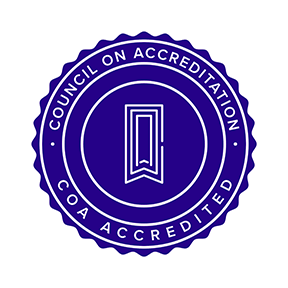5 Powerful Ways to Bully-Proof Your Child & Increase Their Self-Esteem
1st of March 2019

Did you know that 56 percent of students have personally felt some sort of bullying at school? According to recent reports, 90 percent of 4th and 8th graders were victims of bullying. Two out of five teens feel that they are bullied because of their appearance. One out of 10 students drop out of school because they are bullied. It is estimated that nearly 1 in 4 teachers intervene 4 percent of the time when bullying takes place.
A popular study revealed that children who were bullied had more mental health problems as adults more significant than children who were mistreated by their parents. Research shows that children who are bullied often report depression, experience suicidal ideation, suffer from eating disorders, and more. I experienced chronic bullying when I was in foster care. I re-entered the system at 13 years-old due to molestation and neglect.
As a quiet, shy kid in 7th grade who had been abused, I was often a target to other kids who could see that I lacked confidence. When I would enter classrooms, pass by a group of kids, or go to eat lunch, I often held my head down hoping no one would notice me, because I didn’t feel safe in the world.
Being called names and harassed by “popular” kids at school increased my lack of self-esteem, social anxiety and depression. The effects of experiencing chronic bullying for years lasted well throughout my college years. Instead of feeling proud of myself for beating the odds and getting an education, I hid myself from the world.
I began to develop an unhealthy relationship with food in order to mask my emotions. I also began to gain weight so that I could be invisible in order to avoid encountering more traumatic events. Although I have been able to heal from childhood bullying, there are many foster children who have the same struggles I endured. For many of them, going to school can be like going into a war zone. It can trigger anxiety or even depression, especially if they have low self-esteem due to experiencing trauma, abandonment or neglect.
Although numerous studies have revealed the effects of bullying on victims, studies have also shown that bullied, abused, or children rejected by their parents also indulge in bullying behaviors.
According to a recent study, bullies are more likely to live in single parent families, extended family members or with foster parents. Did you know that over 60 percent of bullies are either physically, mentally, or sexually abused by their parents or someone else in their household?
Whether your child is the bully, or is being victimized, the impact of bullying can be devastating to any child. If you are a parent who is questioning if your child is being bullied, some common signs include a loss of appetite, overeating, injuries, changes in mood, anger outbursts, frequent illness, declining grades, and social avoidance.
If you suspect that your foster child is being bullied, it is imperative to take immediate action in order to help your child feel loved and protected. If your child is struggling with the effects of bullying, here are some effective tips to help your child heal and develop more self-confidence.
Be Present
Many children shut down after being bullied, and often have a difficult time being open about their experiences. Be present when your child comes home from school. Ask them how their day went and pay close attention to their body language and the words they use. If they say things such as, “No one likes me,” or “People are saying mean things to me,” make sure that you talk with your child to get the details about what is going on at school.
Ask them open-ended questions, such as “Who is saying mean things to you,” or “Where were you when you were called names?” A great question to ask would be, “How did it make you feel when the kid at school said mean things to you?” The most important thing is for your child to express their feelings and feel support when they are struggling with painful emotions.
Help Manage Their Emotions
Some parents may believe that anger or sadness aren’t acceptable feelings a child should express. Studies show, however, that unresolved feelings can be more damaging than letting painful feelings fester. When your child confides in you, listen to them without judgment. If your child is angry, think of constructive ways to let the anger out.
If your child is sad, allow your child to cry if they need to. If crying or talking about their anger does not release the emotion, encourage the child to engage in activities that are fun for them, such as coloring, painting, or playing sports. Physical activity can release endorphins, which can help your child get into a happier state.
Stop Negative Self-Talk
Children who are bullied often take on the beliefs or behaviors of their bullies. They may start calling themselves names or putting themselves down verbally. When you witness your child using negative language, ask them to state the things they like about themselves. If this is a challenge, start by telling the child what you like about them.
Correct Your Child’s Body Language
If your child frequently walks with their head down, slouches in chairs, doesn’t hold eye contact with their peers, start affirming your child. Encourage them to hold their head up, stand up straight and practice better eye contact with them. Body language is a quick indicator of how someone feels about themselves. Children who have good posture and great eye contact may be less likely to be victims of bullying.
Fun Outlets
Many children who experience bullying often withdraw and experience shame and guilt. One way to help increase your child’s self-esteem is by having them in a supportive, nurturing environment. A membership to the Boys and Girls Club, the YMCA, or getting your kids involved in an after-school program can help them regain their confidence, learn positive social skills and behaviors that can teach them how to develop strong relationships with others.
This article was originally published in the March/April 2019 edition of Fostering Families Today. Trinity Youth Services is a foster care and adoptions agency based in Southern California and in Houston, Texas. To learn how to foster or adopt a child and make a positive difference for a child in need of loving support, please visit www.TrinityYS.org, or contact Florence at fedwards@TrinityYS.org, or 909-825-5588 ext. 230.
 Florence Edwards, Foster Care Marketing Specialist
Florence Edwards, Foster Care Marketing Specialist
Florence has a strong commitment to helping foster youth and their families thrive and live successful lives. A former foster youth, Florence obtained her bachelor’s and master’s degree in Communications from California State University, San Bernardino, and is a certified Holistic Life Coach, motivational writer, self-help author and celebrity interviewer. Beyond the Trinity Youth Services blog, Florence’s articles can be found in numerous platforms including Foster Focus Magazine, Heart & Soul Magazine, BET Centric and Huffington Post. A passionate advocate for the LGBTQ community, Florence continues to educate, support and mentor foster youth throughout Southern California.




